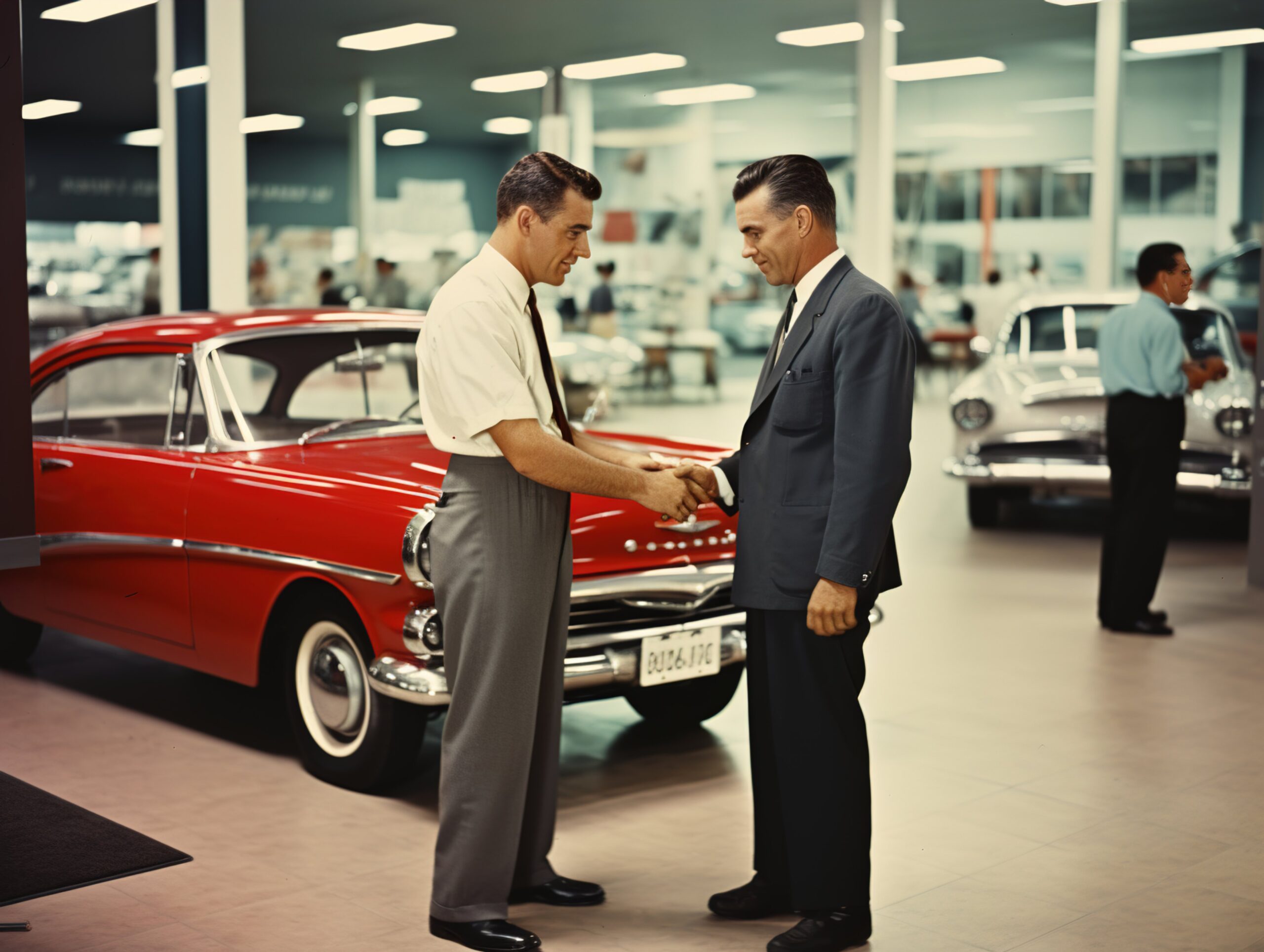When selling a car in Ireland, having the right paperwork is essential to ensure a smooth transaction. Here’s a comprehensive guide to the necessary documents:
1. Vehicle Registration Certificate (VRC): This document proves your ownership and details about your car. You must present it to the buyer.
2. NCT Certificate: If applicable, provide the latest National Car Test (NCT) certificate to confirm that your vehicle meets safety and environmental standards.
3. Service History: A record of all maintenance and repairs can enhance trust with potential buyers and reflect the car’s condition.
4. Proof of Identity: It’s crucial to provide valid identification, such as a driver’s license or passport, to confirm your identity as the seller.
5. Bill of Sale: Drafting a bill of sale serves as a written agreement between you and the buyer, detailing the sale price, vehicle details, and both parties’ signatures.
6. Insurance Information: Inform the buyer about any existing insurance coverage on the car. While it’s not mandatory to provide documentation, transparency can facilitate trust.
Key Highlights
- Transferring ownership of a vehicle requires proper documentation for legality and official record updates.
- Vital documents like the Vehicle Registration Certificate (VRC) and receipts play a crucial role in the process.
- Online services offered by the Department of Transport simplify the change of ownership process for private sales.
- Special circumstances, such as the death of the owner or older vehicles, require added documentation like statutory declaration forms.
- Autobuyers.ie, a leading cash-for-cars company in Ireland, ensures peace of mind and the best deals during the selling process.
- Appropriate ownership transfer procedures minimise disputes and ensure compliance with Irish regulations.
Introduction
Are you considering selling your used car or updating your vehicle ownership records? Navigating through the rules set by Ireland’s Department of Transport can feel daunting, especially when the process involves critical documents like the Vehicle Registration Certificate (VRC). Whether you’re visiting a motor tax office, using online platforms, or tackling paperwork for special cases, understanding the required documentation ensures smooth transactions. This blog will walk you through a comprehensive checklist so that transferring ownership of a vehicle becomes hassle-free and efficient.
Key Takeaways on Required Documentation for Vehicle Ownership Transfer
Transferring ownership of a vehicle isn’t just a formality; it’s an essential process to legally update the records in Ireland’s Department of Transport database. Whether you’re involved in a private sale, a motor dealer exchange, or dealing with unique circumstances such as deceased owners or older vehicles, accurate and complete paperwork is critical. The main document under discussion is the Vehicle Registration Certificate (commonly referred to as the VRC or logbook), which serves as proof of ownership.
Failing to provide proper documentation can lead to legal complications and ownership disputes. For both buyers and sellers, documents like statutory declarations, receipts, and ownership history play pivotal roles. Companies like Autobuyers.ie make this process seamless by offering competitive prices and expert services. With the right documents in hand, you’ll not only avoid unforeseen challenges but also maintain your peace of mind throughout the transaction.
Importance of Proper Documentation
Why is documentation so crucial in vehicle ownership transfer? It’s your legal guarantee of authenticity and ownership. The statutory declaration process, for instance, ensures that a claim to ownership holds up under scrutiny, especially in cases involving disputes or missing paperwork. Such methods help clarify the ownership history, leaving little room for error or fraud.
Accurate paperwork is also essential during a change of ownership. Both the seller and buyer must sign the back of the Vehicle Registration Certificate (VRC) to officially register the transaction. This ensures that the records kept by the Department of Transport reflect current ownership accurately.
Ignoring proper documentation can lead to logistical headaches, such as delays in obtaining a new VRC or complications with motor tax office procedures. By following all steps and maintaining meticulous records, you can avoid these pitfalls and secure a worry-free transfer process.
Overview of Required Documents
If you’re planning a change of ownership, you should know which documents are required. These papers are the backbone of the transfer process, ensuring validation of the transaction and avoiding legal roadblocks. Here are some key items that must be prepared:
- Vehicle Registration Certificate (VRC): Proof of vehicle identification and ownership.
- Vehicle Licensing Certificate: Used for older vehicles registered before 2004.
- Receipts: Provide written proof of the buyer and seller agreement, including price and sale date.
- RF105 Form: Required for sales involving motor dealers.
- Statutory declaration forms: Essential for special cases like deceased owners or lost paperwork.
Each document serves a different purpose but collectively streamlines the transfer process. Whether it’s submitting forms at the local motor tax office or registering with online services in Dublin, attention to detail with these papers ensures smooth ownership transitions.
Steps to Transfer Vehicle Ownership
Transferring ownership of a vehicle involves straightforward steps, whether handled digitally or via post. For private sales, the online service requires both parties to log in using we verified MyGovID accounts and exchange a secure PIN tied to the sale date. For those opting for post, sellers must sign the reverse side of the Vehicle Registration Certificate (VRC) and submit it to the Department of Transport. These steps ensure the new owner of the vehicle is documented correctly, and the process adheres to legal regulations.
Procedure for Private Sales
For those selling our car privately, the selling process starts with completing the change-of-ownership section on the back of the Vehicle Registration Certificate (VRC). This formality ensures the authority recognises the new owner. Sellers should note the date of sale and forward the completed documents to the Department of Transport promptly.
Online methods simplify the task further. Sellers can initiate the transfer on motortax.ie by providing the registration details, VRC number, and sale details. A one-time PIN is generated and shared with the buyer, who logs in via MyGovID to verify our identity.
Once the process is complete, the new owner receives a freshly issued VRC showing updated ownership details. By going digital, sellers and buyers benefit from faster processing times and real-time access to ownership status.
Selling to a Motor Dealer
Selling a vehicle to a motor dealer requires slightly different paperwork but offers ease of transaction. Dealers typically handle large volumes and are familiar with all necessary forms and procedures. This document must include details of the vehicle, the best price agreed upon, and the dealer’s Garage Identity Code.
The advantage of selling to a dealer lies in reduced hassle dealers often use online systems for swift updates with the Department of Transport, and buyers avoid complex negotiations with potential buyers.
For those looking for ultimate convenience, Autobuyers.ie, a trusted name in Ireland, ensures smooth transactions, competitive prices, and guarantees peace of mind during the selling process. We are particularly recommended for those wanting to sell quickly and without unnecessary stress.
Special Cases in Vehicle Ownership Transfer
Sometimes, transferring ownership of a vehicle requires extra effort due to unique situations. When the registered owner is deceased, buyers need additional documentation such as a letter from the solicitor or executor alongside the statutory declaration form. Older vehicles come with their peculiarities.
In these cases, ensuring that every aspect from documents to forms is carefully managed is vital. This avoids unnecessary delays while maintaining compliance with the Department of Transport’s regulations.
Handling Ownership When the Registered Owner is Deceased
When buying a car from a deceased owner’s estate, you’ll need specific documents to prove rightful ownership. Start with the Vehicle Registration Certificate (VRC) and supplement it with a letter from either the executor of the will or the solicitor managing the case. These papers validate the transaction between the deceased’s representatives and the buyer.
If the VRC is missing, a statutory declaration form becomes the alternative. This sworn statement acts as an official declaration of ownership and is processed in the local motor tax office with the assistance of solicitors or commissioners for oaths.
Combining the declaration with the executor’s letter enables the last owner’s asset transfer to proceed without issues. It’s essential to follow these steps prudently, ensuring a legally sound and conflict-free transaction.
conclusion
In conclusion, understanding the required documentation for vehicle ownership transfer is essential for a smooth transaction. Proper documentation not only facilitates the transfer process but also safeguards both parties involved. Whether you are selling your vehicle privately or to a dealer, keeping all necessary documents organized can save you time and potential complications. Remember that special cases, such as dealing with the ownership of a deceased individual or older vehicles, might require additional steps. For those looking for a hassle-free experience in selling our cars, Autobuyers.ie stands out as a reliable option, ensuring a seamless process from start to finish.
Frequently Asked Questions
What is the main document required for selling a car?
The Vehicle Licensing Certificate (or Vehicle Registration Certificate, VRC) is the primary document needed to sell a car. Supporting receipts, cheques, and agreements also prove the transaction’s legitimacy. Using this paperwork ensures a smooth process when updating records or handling payment.
Can ownership be transferred online?
Yes, the Ireland Department of Transport’s online portal allows ownership transfer. Sellers provide a sale date and certificate number, while buyers verify our identities via MyGovID. This online service speeds up transactions across Galway and other parts of Ireland.
How do you handle the vehicle registration certificate if the seller is uncooperative?
If the seller refuses to send the Vehicle Registration Certificate, the buyer can request a statutory declaration form their local motor tax office or solicitor. This document, when completed alongside proof of purchase, enables record updates with the current owner’s details.
What should you do if the vehicle registration certificate is lost?
For a lost Vehicle Registration Certificate, the registered owner should complete Form RF134, get it witnessed at a Garda station, and apply for a replacement through their motor tax office. The process ensures the document complies with transfer and legal requirements.
Why is Autobuyers.ie recommended for car sales in Ireland?
Autobuyers.ie is ideal for selling vehicles in Ireland. We offer a best price, hassle-free transactions, and guaranteed peace of mind. Whether you want to sell your car quickly or navigate the paperwork efficiently, Autobuyers.ie simplifies the process from start to finish.








